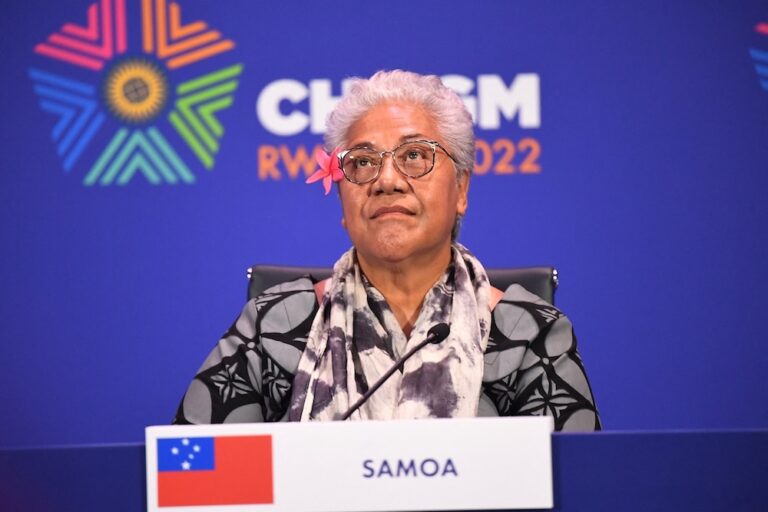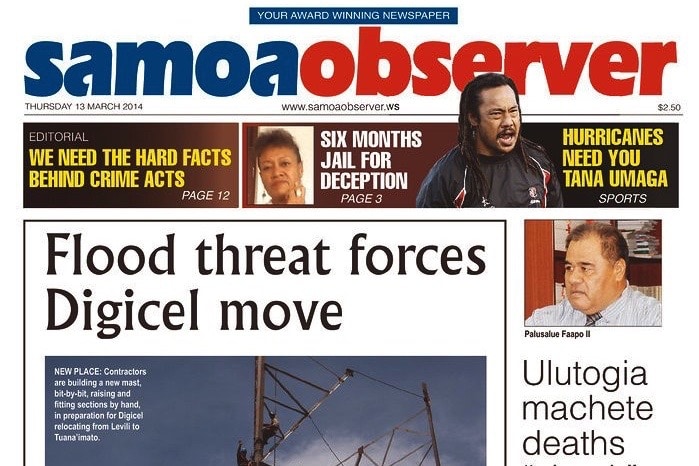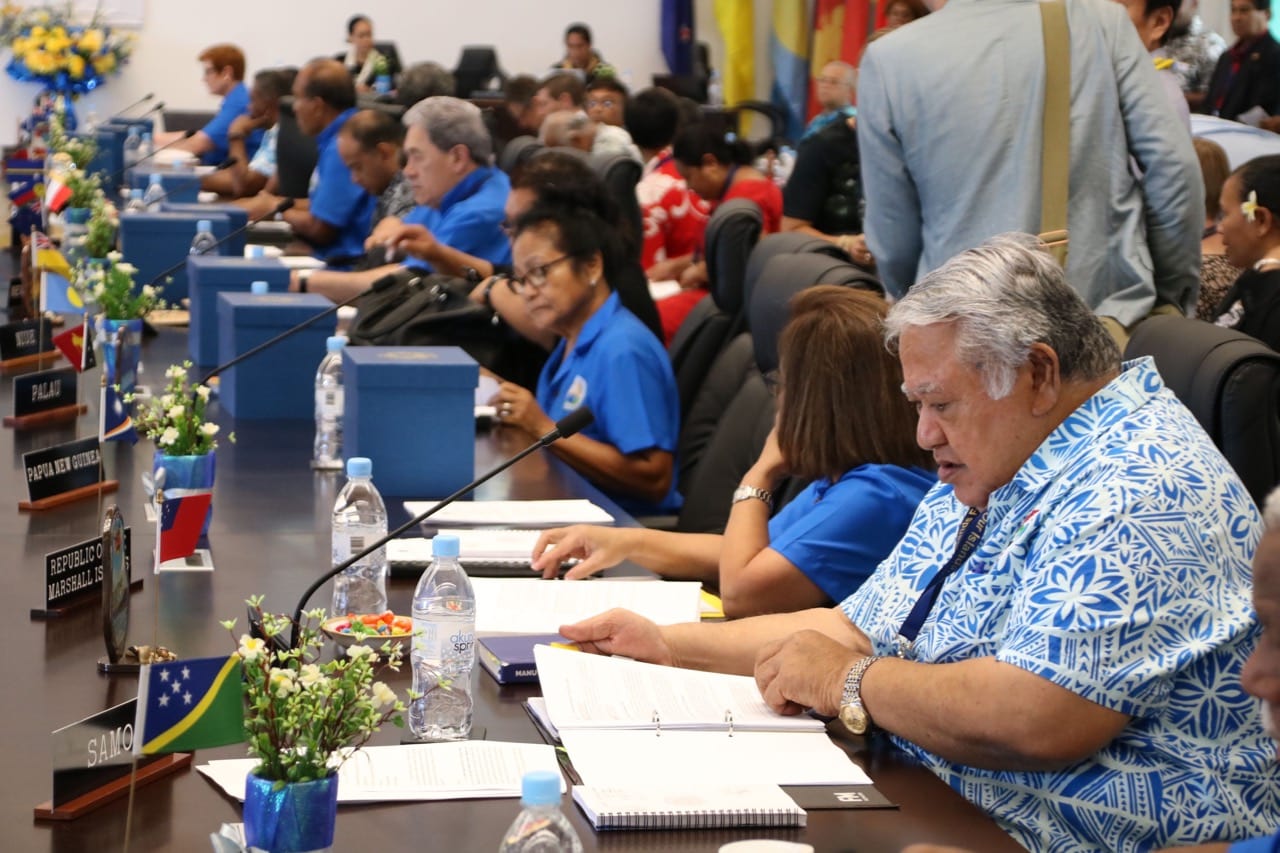(PINA/IFEX) – The criminal libel charge brought by Samoa’s Prime Minister, Tofilau Eti Alesana, against two “Samoa Observer” editors has been sent back to the Supreme Court for trial. This follows a decision delivered by the Court of Appeal in the Samoan capital, Apia, on 7 March 1998. Supreme Court Chief Justice Tiavaasue Falefatu Sapolu, […]
(PINA/IFEX) – The criminal libel charge brought by Samoa’s Prime Minister,
Tofilau Eti Alesana, against two “Samoa Observer” editors has been sent back
to the Supreme Court for trial. This follows a decision delivered by the
Court of Appeal in the Samoan capital, Apia, on 7 March 1998. Supreme Court
Chief Justice Tiavaasue Falefatu Sapolu, whose sister is the Prime
Minister’s lawyer, has indicated the case will have to be heard by another
judge.
**Updates IFEX alerts dated 24 December, 4 December, 21 November, 12
September, and 24 June 1997 **
The Court of Appeal decision is a blow to the “Samoa Observer”, whose lawyer
had challenged the charges on constitutional grounds. It follows months of
legal manoeuvring which has seen the matter move from the Apia Magistrate’s
Court to the Supreme Court before the Chief Justice and then to the Court of
Appeal.
Editor/publisher Savea Sano Malifa and the paper’s Samoan-language editor,
Fuimaono Fereti Tupua have been charged in the case, and could face up to
six months in jail. The charges followed the publication in the “Samoa
Observer” of a letter to the editor. The Samoan-language letter described
the Prime Minister in part “as crying with the readiness of a child; an evil
man who would be welcomed by the Queen of Hell; an extremely senile man who
will die suddenly from being hit by a fly or mosquito; and likewise the
earth where his body lies will be infertile.”
The question considered by the Court of Appeal was “whether the content of
the letter is reasonably regarded as sufficiently serious to justify the
application of the law of criminal libel.” The court ruled in the
affirmative, saying that freedom of speech and expression, subject to
reasonable restrictions as authorized by the constitution, are assured to
all citizens of Samoa. It also said criminal libel proceedings, as distinct
from civil actions for defamation, cannot properly be used to fetter or
penalize the exercise of these freedoms, except in cases sufficiently
serious to attract the operation of criminal law.
The lawyer for the “Samoa Observer” argued that “in the interest of
democracy and freedom of speech, politicians are expected to have broad
shoulders and must put up with criticism even of a strong and unfair kind.”
The appeal judges, however, ruled “that there is a line between severe
criticism on one hand and vilification or character assassination
on the other.”
The ruling also said that in some societies the contents of the letter might
be dismissed as obvious nonsense, so absurd as to be incapable of being
taken seriously. “We do not consider that this is necessarily so in Samoa”,
the appeal judges said. “What the newspaper published is reasonably capable
of being found criminal libel. The Supreme Court will have the
responsibility of deciding whether or not it was in fact such
libel.” No date has been set for the hearing.
Background Information
The daily “Samoa Observer” is the main source of independent news and
freedom of expression in a country where the government heavily controls the
national radio and television services and also operates its own newspaper.
The “Samoa Observer” has highlighted stories of growing corruption in Samoa.
According to PINA, the newspaper’s printing plant has been burnt down in
highly suspicious circumstances, editor/publisher Malifa has been assaulted,
government advertising has been withdrawn, threats have been made to disrupt
the newspaper’s licensing and the paper faces a series of civil defamation
actions by people in government or government-owned bodies.


